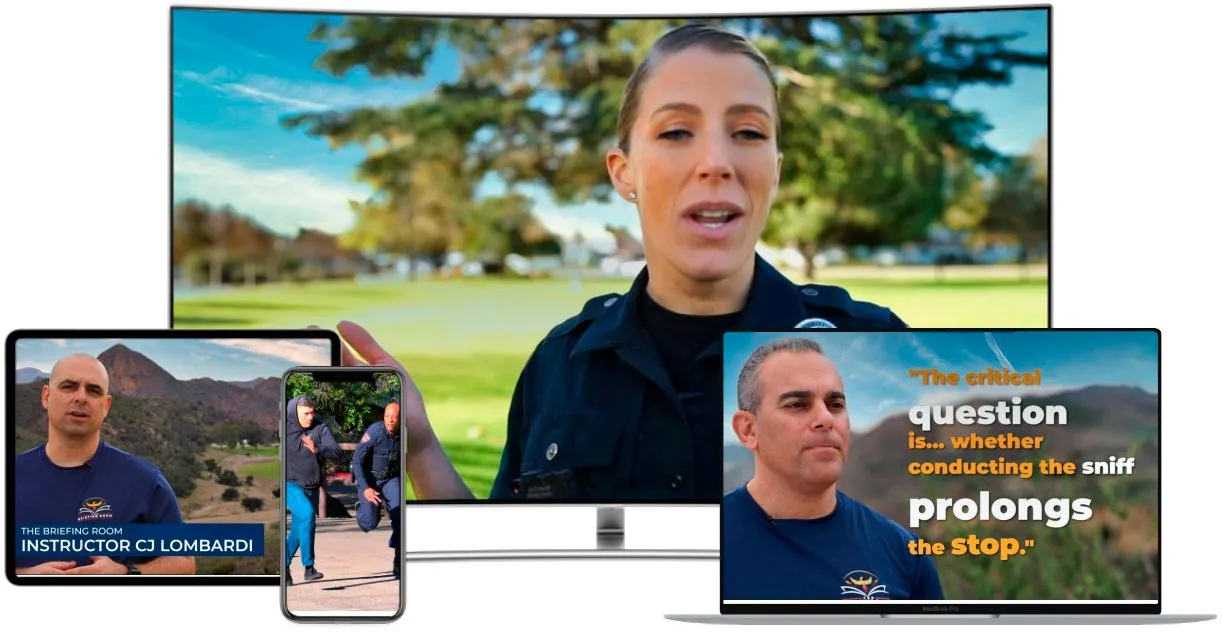This post is only offered as a discussion topic only and does not represent legal advice. Officers must refer to the laws in their own State as well as their agency’s policies, which can be more restrictive on officers that the law requires.
Scenario: During a traffic stop, an officer discovers that the driver of the vehicle is on parole. In addition to being subject to California’s general parole search conditions, his parole terms also include a condition that says he has to surrender any electronic devices to law enforcement and provide a passcode. During a search of his vehicle, the officer discovers a cellular phone. But, despite his parole terms, he refuses to tell the officer the passcode.
Can the officer legally search the phone without a warrant and, if so, can they force his finger onto the phone’s biometric sensor in order to unlock it?
Answer: These were the two questions in the 2024 9th Circuit Court of Appeals Case USA v. Payne. In that case, the court said, “The language of California’s general search condition, written into all California parole notices, is abundantly clear, putting parolees like Payne on notice that their person, home, phone, and other belongings may be searched at any time without cause or a warrant. This clear and unambiguous search condition serves to significantly diminish parolees’ reasonable expectation of privacy. Thus, under the general search condition of Payne’s parole, he did not have an expectation of privacy that society would recognize as legitimate in the contents of his cell phone.” Therefore, the parolee’s phone could be searched by the officers based on the general search conditions of his parole.
Next, they turned to whether or not it was lawful for the officers to grab the parolee’s finger and use it to unlock the phone. The parolee claimed this was a violation of his 5th Amendment Constitutional Rights against self-incrimination, especially since he had a special condition on his parole that required him to divulge the password, not his fingerprint. The court said the determining factor about whether this was a violation of his Fifth Amendments rights was whether or not the parolee was forced to divulge the contents of his mind, in essence, forcing him to testify against himself. The court determined, “…we hold that the compelled use of Payne’s thumb to unlock his phone… required no cognitive exertion, placing it firmly in the same category as a blood draw or fingerprint taken at booking. Accordingly, under the current binding Supreme Court framework, the use of Payne’s thumb to unlock his phone was not a testimonial act and the Fifth Amendment does not apply.”
So, the 9th Circuit said that under the circumstances faced by these officers, they could have decided to confiscate the parolee’s phone or arrest him for a parole violation for refusing to provide access to search his phone. But, choosing to force his finger to touch the biometric sensor so they could search the phone was also a lawful option the officers had as long as the search of the phone wasn’t done in an arbitrary, capricious, or harassing manner. They said, “(The officer’s) use of means not specifically contemplated by Payne’s special search condition to access a device over which Payne had no significant privacy interest does not appear to have been unreasonable.”
They did offer one final warning. They said, “Our opinion should not be read to extend to all instances where a biometric is used to unlock an electronic device. Indeed, the outcome on the testimonial prong may have been different had (the officer) required Payne to independently select the finger that he placed on the phone.” They said the difference was that by grabbing the parolee’s finger and placing it on the phone, the parolee was not forced to provide information from his mind that incriminated himself.
As always, if an officer has questions or wants to learn more, they can find the entire case in the additional resources section for this training on our learning platform. And officers should be sure to refer to their own agency policy which can place more restrictions on the actions of officers than the law requires.
This video and the case is available in the additional resources of The Briefing Room Learning Platform.
The Briefing Room has a short training video available on this exact scenario so agency supervisors can easily train every officer in your agency on this essential topic.

